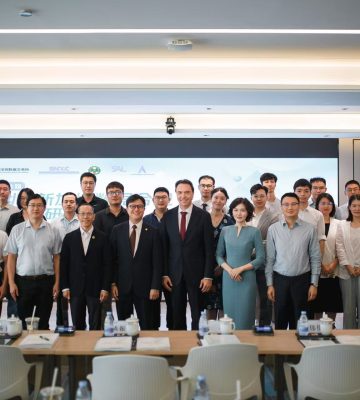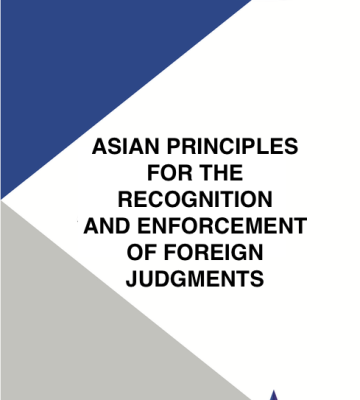On 30 July 2020, Shenyang Intermediate People’s Court in China’s Liaoning Province ruled in (2020) Liao 01 Xie Wai Ren No. 7 (2020辽01协外认7号) not to recognise and enforce the judgments of 2013NA7306 and 2013NA7313 by the Seoul Southern District Court of South Korea.
The applicant and the respondent before the Chinese proceedings, respectively Jin Zhimei and Piao Yujing, are both Chinese nationals of Korean ethnicity. Piao sued Jin in Seoul Southern District Court for a negative declaration (i.e. no debt existed between them) while Jin countersued for repayment of the money owed. Piao appealed after failing to succeed in the first instance.
On 14 November 2013, the Seoul Southern District Court, on appeal, again ruled against Piao in 2013NA7306 (relating to the negative declaration of debts) and in 2013NA7313 (relating to Jin’s counterclaim). The two judgments were served on Jin and Piao on 29 November 2013 and became effective on 14 December 2013.
Although Jin is the judgment creditor in the proceedings before the South Korean court, she only applied to the Chinese court for recognising and enforcing the two South Korean judgments in her favour on 8 April 2020, almost seven years after the foreign judgments became binding. This is way beyond the two-year limitation for enforcement applications prescribed by Article 239 of the Civil Procedure Law of the People’s Republic of China (read together with Article 547 of the Interpretations of the Supreme People’s Court on the Application of the Civil Procedure Law of the People’s Republic of China).
Not surprisingly, Shenyang Intermediate People’s Court rejected Jin’s application for recognition and enforcement of the South Korean judgments.
The biggest lesson one may learn from this case is probably that a party holding a winning (foreign) judgment should never “rest on their laurels” and should apply for enforcement of that judgment as soon as practicable. Otherwise, the winning party may end up in the same situation as Jin in the current case, and eventually that winning foreign judgment would come to nothing.
Since Shenyang Intermediate People’s Court refused to recognise and enforce the two South Korean judgments on a procedural ground, it may be reasonable to say that this ruling would not dampen the positive trend of mutual recognition and enforcement of judgments between China and South Korea, as we have discussed in a number of earlier cases, such as here and here.
A commentary can also be found at China Justice Observer.
The ruling of (2020) Liao 01 Xie Wai Ren No. 7 (2020辽01协外认7号) is accessible in Chinese via China Judgments Online (registration is required).
Lean more about China’s requirements for recognising and enforcing foreign judgments from the Asian Principles for the Recognition and Enforcement of Foreign Judgments or its bundle with the Recognition and Enforcement of Foreign Judgments in Asia.
Whilst every effort has been made to ensure that the information contained in this update is correct, the Asian Business Law Institute disclaims all liability and responsibility for any error or omission in this update, and in respect of anything, or the consequences of anything, done or omitted to be done by any person in reliance, whether wholly or partially, upon the whole or any part of the contents of this update.




![[Interview] Landmark Indonesian Recognition [Interview] Landmark Indonesian Recognition](https://abli.asia/wp-content/uploads/elementor/thumbs/Interview-Landmark-Indonesian-Recognition-r77cnxow0ude3j2mxz2wbivxrofvqnqg7fg3rw1zx0.jpg)

